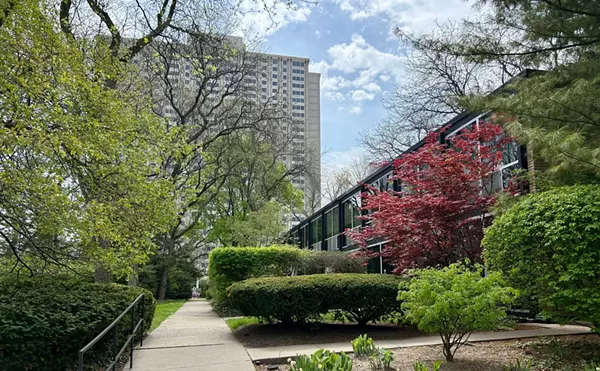
Audio By Carbonatix
[
{
"name": "GPT - Leaderboard - Inline - Content",
"component": "35519556",
"insertPoint": "5th",
"startingPoint": "3",
"requiredCountToDisplay": "3",
"maxInsertions": 100,
"adList": [
{
"adPreset": "LeaderboardInline"
}
]
}
]
Say what you will about Detroit, but it has always been a city of homeowners. The rate of homeownership in Detroit has traditionally been off the charts. Even with painful economic contractions, spiraling crime, poor public services, and a host of other problems, Detroit remains a place where people own the homes they live in. According to analysis of U.S. Census Bureau housing data by the Pew Charitable Trusts, Detroit leads the nation's big cities in owner-occupied units that are paid off, free and clear of a mortgage, at an astonishing 52.6 percent.
Over the years, those statistics have had their pros and cons for the city, but one thing they've engendered is a certain kind of economic democracy, in which residents are real stakeholders in their communities. The denizens of crowded coastal cities are much more likely to pay rent to a landlord, and when gentrification sweeps over a neighborhood, it's often the renters who have to move along to the next, less desirable place to live. In a way, these high rates of home ownership represent a sort of bulwark against the worst excesses of "urban regeneration." Should a neighborhood appreciate in value, long-time residents are at least able to enjoy the benefits that come with it.
In theory, anyway. The truth is, Detroit's high levels of home ownership are a fragile and eroding achievement. That's because, according to the same data from the Pew Charitable Trusts, Detroit leads the 30 largest U.S. cities in percentage of homeowners with household incomes below $35,000. That means a lot of people who own their homes free and clear are likely to struggle harder to pay the taxes necessary to keep them. The fact that home ownership in Detroit declined by 5 percent between 2000 and 2012 suggests that at least some former homeowners became renters.
Needless to say, we're rooting for the longtime owner-occupiers who've toughed it out. And we're encouraged, too, when city auctions of properties find individual buyers who want to stake their claim in "homeowner city."
That's why we were disturbed by the latest large deal announced by the county. Wayne County auctioned a bundle of 6,350 properties and found a buyer willing to pay $3,183,500 for all of them. No word on who the party is, or what their plans for all these properties are. Sources say that roughly 1,000 of them are considered valuable.
We also heard some rumblings about this online. On the Facebook page of the group Neighbors Building Brightmoor and the Brightmoor Farmway, a message was posted concerning about 100 parcels they had been told they'd be able to bid on that were part of that bundle:
All of NBB's vacant land was put in the blight bundle by the County treasury and the Detroit Land Bank. We were assured we could buy it later from them, since no one was going to buy this according to them. Well, it was sold, I don't know by whom, but many of our farmers are left with pieces of their land no longer available to them and many of our parks now have pieces of land that belong to God knows who... the Chinese, the Japanese, Saudi Arabians? 6,000 properties in Detroit in one fell swoop snatched up by someone we don't know.
One commenter on the thread posted: "How sad!!! Why would you try to disrupt the neighborhood like that? This is so wrong!!!" Another declared: "selling all of these far flung properties to one buyer is beyond ridiculous. Whose bright idea was that anyway??"
The Brightmoor folks sound like good examples of conscientious Detroit homeowners, people who own their land, their homes, precisely because they want to be in a good position to determine what's going to happen with their neighborhood. When outside, anonymous forces are given free rein to buy such unrealistic bundles of property, they have every right to feel threatened.
Again, the move is mostly being touted as a win for the city, allowing it to get out from under the cost of demolishing many of the more worthless properties. But will anybody speak up for the people in "the neighborhoods" who find this alarming? We'll wait and watch.





